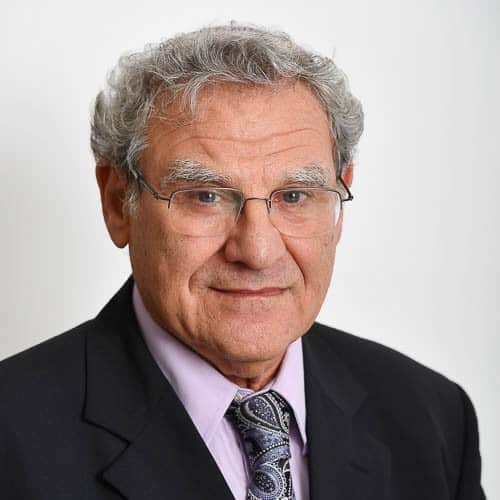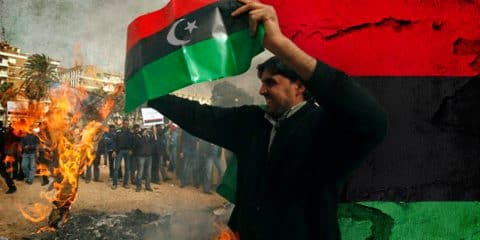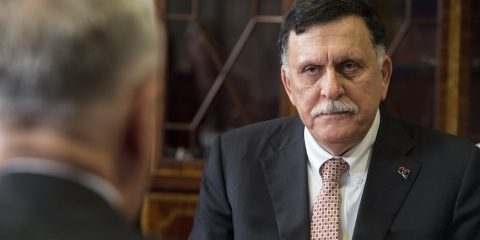A strong Turkish foothold in Libya threatens the free flow of energy resources from the Eastern Mediterranean basin to Europe as planned by Cyprus, Egypt, Greece, Italy and Israel.
Turkish President Recep Tayyip Erdogan last week claimed to have discussed the conflict in Libya in a phone call with US President Donald Trump, stating that the two leaders agreed on “some issues” related to recent developments. While the US is just an observer, Turkey has been very active.
In the Libya conflict, Turkey has supported Libya’s UN-recognized government, the Government of National Accord (GNA) in Tripoli – which has links to Islamist elements – against the strongman Khalifa Haftar (who represents the tribes in the eastern part of the country). Haftar is backed by Russia, Egypt and the UAE. Haftar’s offensive to capture Tripoli suffered significant military setbacks at the hands of GNA, and the tide of the civil war has since been reversed due to active Turkish military involvement in past weeks. The GNA Army has removed the siege on Tripoli and is now advancing eastward toward Sirte.
Erdogan does not hide his objectives. In the short run, he aims to help the Tripoli-based government take over Sirte and the surrounding oil-rich areas along the Mediterranean coast. In the long run, Turkey wants Haftar deposed and left out of the diplomatic process to end the civil war, and therefore turn Libya into a new Turkish ally.
Helping the GNA government consolidate control over Libya will strengthen the Islamist orientation of this country in accordance with Erdogan’s ideological preferences. It will further solidify the bilateral agreement between Turkey and Libya over their Exclusive Economic Zones (EEZ) that divides the Mediterranean Sea and affects the rights of other littoral states, such as Greece, Cyprus, Egypt and Israel.
Washington seems to have turned a blind eye to Turkish actions in Libya, primarily because Ankara took a stand against Moscow’s support for Haftar. Yet America’s passive stance reflects a myopic perspective on the situation, which harms many other American interests.
Transforming Libya into an Islamist bastion, as Erdogan desires, is adverse to core American interests in the east Mediterranean. Oil-rich Libya could become a financier of Islamist activities, similar to Qatar’s role in the region. Putting additional resources at the disposal of Turkey, a country of significant strategic weight that displays an ambitious revisionist agenda, is dangerous.
A strong Turkish foothold in Libya threatens the free flow of energy resources from the Eastern Mediterranean basin to Europe as planned by Cyprus, Egypt, Greece, Italy and Israel. The Turkish presence in Libya could also increase its influence in Gaza, another Islamist entity along the southern shores of the Mediterranean that also borders Egypt. Greater Turkish influence in Libya and Gaza is of course an anathema to Cairo, a long-time rival of Ankara in the Middle East.
INDEED, THE future of Egypt, the most important Arab state, is at stake in relation to Libya. Egypt (along with the UAE) supports Haftar precisely because it wants to prevent the establishment of an Islamist entity on its western border. Egypt bleeds already as it battles an Islamist insurgency in Sinai. Additional seeping Islamist influences from beyond the western border are most unwelcome, particularly since the Muslim Brotherhood is still the strongest force in the Egyptian political arena.
A destabilization of the current Egyptian regime could be very bad news for the moderate Arab states and Israel. Of course, such an outcome also does not serve vital American interests. American aloofness also drives Egypt further into Russia’s arms.
A change of American policy on Libya will limit transatlantic tensions with NATO members. France, Italy and Greece understand the geopolitical sensitivities involved in the struggle on the southern littoral of the Mediterranean. The EU even decided to send a maritime mission to the area, Operation Irini, with the intention of limiting arms smuggling.
Also of note is Libya’s importance as a transit route for illegal immigration into Europe. This fact has probably crossed Erdogan’s mind, particularly since he already controls such immigration from the East. Giving Turkey another lever to control immigration into Europe is not wise.
The power differential between Turkey and the Hellenic states could tempt Ankara into adopting even more aggressive actions. So far Turkey has forcibly prevented the exploration of gas in Cypriot waters, and it also recently conducted military drills to intimidate Greece. In the absence of American attempts to restrain Erdogan, Greece and Cyprus may look to Russia as a source of support. Religiously, there is great affinity among the three states, which has already been expressed in political terms.
Israel is also worried about Washington’s backbencher approach to Libya that gives great freedom of action to Turkey. Erdogan’s visceral hostility toward the Jewish state is well known. A burgeoning Turkish presence in Libya is therefore a threat to Israel’s use of the sea lines in the Mediterranean, where more than 90% of its international trade takes place. Moreover, the Islamist overtones of Erdogan’s regime put him in alliance with Israel’s worst enemies.
Finally, the worst-case scenario in Libya is a Russian-Turkish agreement to divide the country and its energy spoils by establishing its own spheres of influence. A Turkish-Russian alliance in Libya is a threat to the southern flank of NATO. Under Erdogan, Turkey t has distanced itself from the US and the European Union, thereby becoming less a reliable partner in the Western alliance.
The analysis above behooves Washington to change its benign attitude towards Turkish mischief in Libya. Without a more critical American attitude, Turkey could become even more aggressive toward US allies in the East Mediterranean. The like-minded East Mediterranean states need to be more active in the American arena to explain what is at stake in Libya.
Published in The Jerusalem Post 18.06.2020
JISS Policy Papers are published through the generosity of the Greg Rosshandler Family.
Photo: Bigstock







 - בניית אתרים
- בניית אתרים